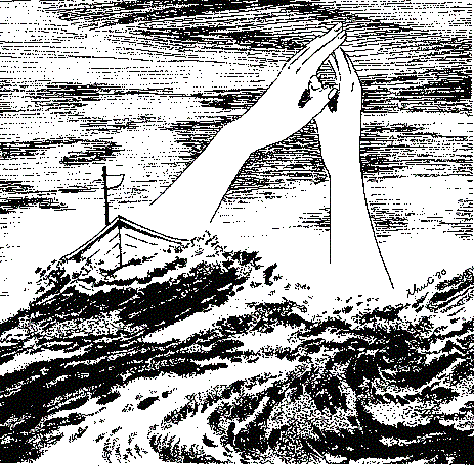Home | Table of Content | Reverse | Sort | Reverse & Sort | Help
Let Me Share What I Believe

Do Le (Paul) Minh
Foreword
Before I became a Christian, I thought that Christianity was just a religion teaching people to live morally. Although I respected attempts to raise human morality, I didn’t pay attention to Christianity because many other philosophies had unsuccessfully tried to do the same. Furthermore, I was a Buddhist then and Christianity, if it only taught people to live moral lives, was no different than Buddhism or any other religion. I agreed with the common Vietnamese perspective that “all religions are good.”
Another reason I didn’t pay attention to Christianity was that I had lost faith in organized religion. Like many other people, I equated “believing in Christ” with “joining a Christian organization,” in the same manner as “believing in Buddha” meant “joining a Buddhist organization.” I presumed that, like all other religions, Christianity had a hierarchy, and the higher you climbed up the ladder, the more “enlightened” you would be. Yet after observing the behavior and attitude of some religious leaders, I was disappointed because, for the most part, they were no different than anyone else.
As I result, I doubted the value of religion. Would joining Christianity or any other religion offer me anything other than a goal of reaching the top of a manmade hierarchy? Perhaps the criteria for advancement in religious institutions are different from those of the world. In the secular world, one needs intelligence and resourcefulness; in religion, one needs morality and obedience. But at the core, the two are the same. One must exhibit certain characteristics. The result must be recognized, by which the reward such as a title is given. Furthermore, compared to looking at external behavior, it is much harder to see the hidden side of human beings, to expose tainted thoughts camouflaged beneath sweet talk. Even if we could see this hidden side of people and reward them accordingly, how does the reward of religion compare to that of the world? Are religions simply human products that subtly replace the hierarchy of the world?
I began to realize that my view of religion was harsh. I recognized that any religion has unscrupulous members and that their activities draw more attention than the good activities of sincere members. Nevertheless, religion still did not attract me.
I wanted to see religion guide people to transcend the fate of mere humanity and become god-like. To me, the ideal religion was simply a means to support, encourage, and lead people down this path. In this religion, everybody should reach this goal solely by his or her own effort and ability.
Yet with our limited abilities, how can we attain such a lofty goal? On the other hand, if we set our sights low, seeking worldly goals (such as titles in religious organizations as we discussed above), then they are not even worth trying.
For example, suppose we are taught that our good deeds are steps in a ladder leading to heaven. If heaven is really a glorious place without tears or suffering, then who can say that he has done enough good to reach it? How much is sufficient? Do we need to give a few million dollars to charity or do we only need to give some old clothes to the poor? I am afraid that if we look at our own behavior, we would doubt whether we are really worthy of living in this very world.
If you add up the good deeds, then you should subtract the bad ones. Our immoral activities are like termites eating the steps of our ladder leading to heaven, and our dirty thoughts form the quicksand beneath it. Religion that aims at lofty goals but relies on our limited abilities ultimately can only make us frustrated and bitter.
In spite of my long-held cynical view of Christianity and of religion in general, I am now writing this book, because when I learned more about Christianity, I discovered that it doesn’t teach you to live a moral life. Neither is Christianity a religious institution or a teacher showing us a way along which we must travel by our own ability. I discovered that entering Christianity is entering into a love affair, or more precisely, renewing a once-broken love affair.
PART ONE
- JESUS WAS NOT A GREAT MAN
- HIS MINISTRY
- HIS RESURRECTION
- SIN
- THE LOVE OF GOD
- REPENTANCE AND BELIEF
- BUT…
- THE BIBLE
- SCIENCE
- COME BACK FROM THERE
- THE HOLY SPIRIT
- THINGS THAT ARE HARD TO UNDERSTAND
